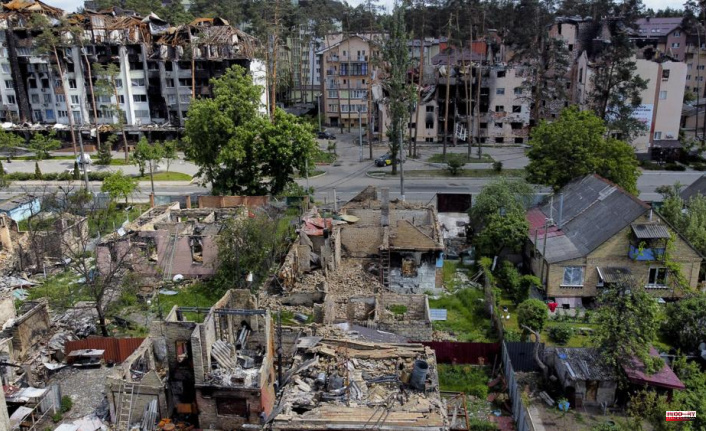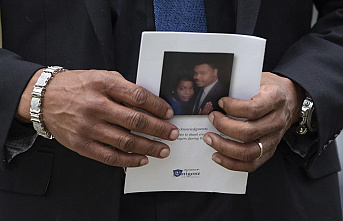Moscow demanded that the West lift sanctions on Russia for the war in Ukraine. This was to shift blame for the growing food crisis caused by Kyiv's inability of shipping millions of tonnes of grain while it was under attack.
Britain accused Russia immediately of "trying the hold the world to ransom" and demanded sanctions relief. A top U.S diplomat attacked the "sheer barbarism, sadistic cruelty, and lawlessness” of the invasion.
According to a Kremlin readingout, Putin said that Russia was ready to help overcome the food crisis by allowing the export of fertilizer and grain to Italy.
Ukraine is one the largest exporters of sunflower oil, wheat, and corn in the world. However, the conflict and the Russian blockade at its ports has halted much that flow and put at risk the global food supply. Many of these ports are also heavily mined.
Russia is also a major grain exporter. Dmitri peskov, a Kremlin spokesperson, said that the West must "cancel the unlawful decisions which hamper chartering ships or exporting grain." He appeared to be trying to combine the blockade against Ukrainian exports with Russia's difficulties in moving its goods.
These claims have been denied by Western officials. Antony Blinken, the U.S. Secretary-of-State, stated last week that food and fertilizer are exempted from the U.S. sanctions and other countries. Washington is also working to ensure that the flow of these goods does not suffer.
The war is now in its fourth month and world leaders are calling for more solutions. Ngozi Okonjo, Director General of the World Trade Organization, stated that about 25 million tons Ukrainian grain are in storage while another 25 million could be harvested next month.
European countries tried to alleviate the crisis by transporting grain out of Ukraine by rail, but trains can only carry a fraction of what Ukraine produces and ships are required for bulk exports.
The Russian Defense Ministry also proposed corridors that would allow foreign ships to leave ports on the Black Sea as well as Mariupol, on the Sea of Ozov.
Mikhail Mizintsev is the head of Russia's National Defense Control Center. He said that 70 vessels from 16 different countries were based in six ports at the Black Sea, including Odesa and Kherson. He didn't specify how many vessels might be available to transport food.
Dmytro Kuleba, Ukrainian Foreign Minister, stated that his country was open to safe corridors in principle but was unsure if Russia could trust it to allow safe passage and to not send its military ships "sneaking into" the harbor to attack Odesa.
British Foreign Secretary Liz Truss stated that Putin was "trying [to] hold the world hostage" by asking for some sanctions to be lifted before allowing Ukrainian grain shipment to resume.
Truss stated that Putin has "essentially weaponized hunger, lack of food amongst the poorest people in the world" during a visit to Sarajevo (Bosnia-Herzegovina). "What we can't have is any lifting or appeasement. This will only make Putin more powerful over the long-term."
Volodymyr Zelenskyy, the Ukrainian president, called for tougher sanctions against Russia. This includes a ban by the European Union on Russian oil and gas.
He said that "pressuring Russia is literally about saving lives" in his nightly video address. "And every day that the aggressor delays, weakens, or makes proposals to the victim in order to appease him, new Ukrainians are killed." These are new threats for everyone on our continent."
Putin stated that it was impossible and unrealistic to isolate Russia in today's world. He spoke via video to the Eurasian Economic Forum members, which includes several ex-Soviet countries. He stated that those who attempt to isolate Russia would "primarily harm themselves," citing broken food supply chain.
American Ambassador to the Organization for Security and Cooperation in Europe Michael Carpenter urged its members "to provide Ukraine with the resources it requires to defend itself against Putin’s "revanchist delusions."
Carpenter stated in Vienna that if Russia was "successful" in Ukraine, there would be "more horrific reports from filtration camp, more forcibly displace people, more summary executions and more torture, as well as more looting."












